new posts in all blogs
Viewing: Blog Posts Tagged with: Around the Web, Most Recent at Top [Help]
Results 26 - 50 of 67
How to use this Page
You are viewing the most recent posts tagged with the words: Around the Web in the JacketFlap blog reader. What is a tag? Think of a tag as a keyword or category label. Tags can both help you find posts on JacketFlap.com as well as provide an easy way for you to "remember" and classify posts for later recall. Try adding a tag yourself by clicking "Add a tag" below a post's header. Scroll down through the list of Recent Posts in the left column and click on a post title that sounds interesting. You can view all posts from a specific blog by clicking the Blog name in the right column, or you can click a 'More Posts from this Blog' link in any individual post.
“Education is the most powerful weapon you can use to change the world.”
– Nelson Mandela.
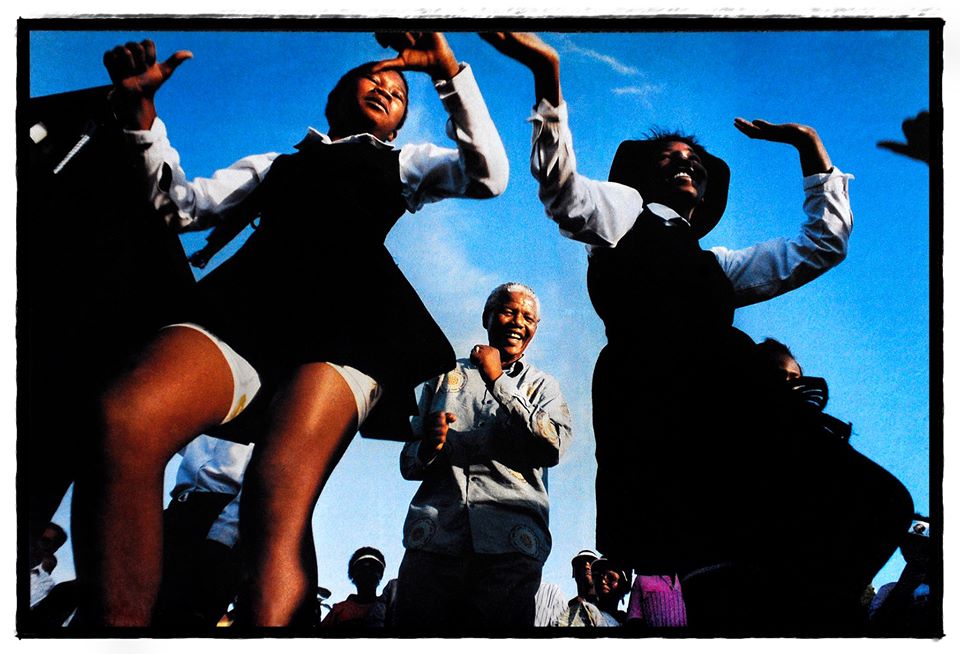
Today I came across this remarkable 1994 photograph by Michael S. Williamson, and this powerful quote, and thought I’d bring them together here.
For my own self. And for you to stumble upon.
That is all.
Carry on.

By: James Preller,
on 11/22/2013
Blog:
James Preller's Blog
(
Login to Add to MyJacketFlap)
JacketFlap tags:
Readings,
Donalyn Miller,
The Book Whisperer,
Around the Web,
In the Classroom,
Nerdy Book Club,
Awakening the Inner Reader in Every Child,
Reading changes your life,
You know you've made it when,
Add a tag
I met Donalyn Miller at a Literacy Conference in Ohio. She was the keynote speaker and I came away impressed, inspired, and determined to read her book, THE BOOK WHISPERER: Awakening the Inner Reader in Every Child.

I started reading it yesterday, frustrated over my own 9th-grade son’s brutal, book-hating experience in advanced, 9th-grade English.
I underlined this passage from Donalyn’s book, page 18:
Reading changes your life. Reading unlocks worlds unknown or forgotten, taking travelers around the world and through time. Reading helps you escape the confines of school and pursue your own education. Through characters — the saints and sinners, real or imagined — reading shows you how to be a better human being.
The book is filled with passages that make you want to stand up and cheer.
Anyway, this morning Donalyn Miller shared her enthusiasm over this fun bit of pop culture stardom:

Good for Donalyn Miller, good for Jeopardy.
It’s funny, isn’t it? That’s a real touchstone in America today. An undeniable sign that you’ve arrived and made your mark. You become a clue on Jeopardy!
Donalyn is also a founding member of the Nerdy Book Club, which you should definitely follow. Seriously, I insist.

By: James Preller,
on 10/15/2013
Blog:
James Preller's Blog
(
Login to Add to MyJacketFlap)
JacketFlap tags:
Scary Tales series,
Boys and Popular Culture,
The danger of well-meaning adults,
Neil Gaiman,
R.L. Stine,
Enid Blyton,
James Preller,
Scary Tales,
Around the Web,
Misreading Masculinity,
Thomas Newkirk,
Add a tag
“Well-meaning adults can easily destroy
a child’s love of reading.
Stop them reading what they enjoy
or give them worthy-but-dull books that you like
–- the 21st-century equivalents of Victorian ‘improving’ literature –-
you’ll wind up with a generation
convinced that reading is uncool and, worse, unpleasant.”
– Neil Gaiman.

In a recent lecture, Neil Gaiman passionately warned of the danger of adults trying to dictate what children should or should not read. He believes children should decide for themselves, they should read what they love, and that the wrong kind of interference, no matter how well-intentioned, can snub out a child’s interest in reading forever.
From The Guardian:
[Gaiman] said: “I don’t think there is such a thing as a bad book for children.” Every now and again there was a fashion for saying that Enid Blyton or RL Stine was a bad author or that comics fostered illiteracy. “It’s tosh. It’s snobbery and it’s foolishness.”
This all reminded me of an interview I conducted with Thomas Newkirk, author of the important book, Misreading Masculinity: Boys, Literacy, and Popular Culture, Newkirk spoke to these same issues — the imposition of adult tastes on students, particularly young boys.
Newkirk told me:
“I don’t think that means that we give up on asking students to read and write realistic genres — but we need to be open to other tastes as well. Fantasy allows us to escape, to be bigger and braver than we are, to suspend the limitations of time and space. I think we all need that freedom as well.”
He continued: “I think we all like some AKA crap. No one is high brow all the time. So it seems to me OK to ask kids to value what we value; but we also have to understand the appeal of what they like. It can’t be all one or the other. We have values and goals for their reading and writing; but we won’t win the cooperation of students if our attitude toward their culture is one of dismissal. One challenge is to look at books from the boy’s point of view. I don’t think gender is an absolute barrier here. What’s needed is an open mind, a sense of curiosity. What makes this boy tick? What are the themes, passions, competencies in his life that I can build on? To teach we all need to get outside ourselves, and into someone else’s skin. I know many female teachers who are wonderful at this. And it seems to me that when a boy senses a female teacher cares about what he cares about, that boy will be open to other things the teacher asks of him.”
Yes, some of this strikes a chord in me. I’m an ex-kid myself. But I’ve already encountered glimpses of this — and open hostility — for my new SCARY TALES series. I was at a book festival in Chappaqua when a daughter and her father (after he put down the phone) had a long argument at my table. She wanted one of my SCARY TALES books. She said, “I really, really want to read this book.” He did not think it was worth her while. She countered, he hunkered down. This went on for five minutes while I sat there like a rubber dummy, agog and aghast.
This doesn’t just happen with girls.
In another situation, I was asked not to mention my new series to anyone at an elementary school where I had been invited to speak. I could come, I was told, they loved my books — just don’t talk about, you know, the books that should not exist.
I declined to meet the contraints of the dis-invitation. I concluded a long letter to the librarian with this:
Oh well. In the end we both know that many elementary school children love scary stories — many librarians I’ve talked to can’t keep them on the shelves — but in this case that’s not what you, or nameless others, want them to read. Or to even be made aware the books exist. We also know about the power of a motivated reader. And how readers grow and develop over time. How one good book leads to another. But this is what boys have always been told, that what they like isn’t worthy, what they enjoy is somehow “wrong.” We deny their maleness. And the “we” is usually well-meaning women. Rather than building bridges to literacy, some people put up obstacles. And thus: there is a national crisis in boys reading scores. And until attitudes change, that crisis will continue.


By: James Preller,
on 1/24/2013
Blog:
James Preller's Blog
(
Login to Add to MyJacketFlap)
JacketFlap tags:
Family,
James Preller,
Bill Nye,
Carl Sagan,
Around the Web,
In the Classroom,
Maggie Preller,
Overheard Preller,
Middle School Life,
I Fucking Love Science,
Wheel of wonder,
Add a tag
Lisa had asked Maggie, grade 6, about her classes and received the above reply. Which at first struck me as a hilarious thing to say about science. It was like saying, I don’t know, math should funnier.

But then I realized she might be onto something. When we think of our science teachers, most of them are dry, dull, strict. This is science, this is important: this is serious business!
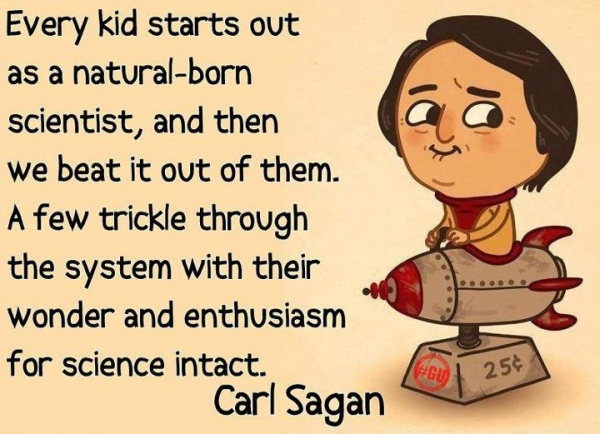
And in fairness, it often is, kids can get hurt, things might explode.

But then there are those rare science teachers — and scientists like Bill Nye, on television — who bring the joy of discovery into the process. Or should I say, keep the joy. The wonder.

They find the fun and the funny. Like a child with a new toy, figuring out what makes it go. Discovering the awesomeness of it all.

On Facebook I “liked” a site called, “I Love F***ing Science.” I’ve always regretted the F***ing in that title because it makes it harder for me to share with others, especially anyone who might read my books.

This post reflects a few things I’ve picked up from there, and other places.
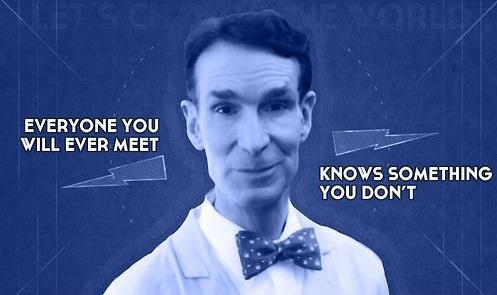
Just trying to bring the fun, Maggie. I’m glad you like science.

Note: This cartoon was created by Aaron Bacall. You can enjoy more of his work by clicking on this link.

By: James Preller,
on 9/3/2012
Blog:
James Preller's Blog
(
Login to Add to MyJacketFlap)
JacketFlap tags:
Poetry Friday,
Charles Simic,
Readings,
Jonathan Lethem,
Tom Waits,
The Writer's Almanac,
Charles Bukowski,
Maxine Kumin,
Anne Sexton,
Around the Web,
Interviews & Appreciations,
Fear of Music,
Freedom Franzen,
Good Poems Garrison Keillor,
Preller poetry,
Add a tag
I basically took the summer off from blogging, so feel a little wobbly about it, my palms sweating on the handlebars, not sure I remember how to do this. I don’t know what happened, exactly, just somehow tired of the “James Preller” corporate thing. Ha. Mostly, I wanted to concentrate on other writings, as I’ve been deep in a new series that I’m writing for Feiwel & Friends. It won’t launch until The Fabled Summer of ‘13, but I’ve nearly finished the third book in the series.
NOTE: I just reread this and had a chuckle about that “nearly finished” line. It only signifies that I’m an old pro when it comes to deadlines and editors: a manuscript that has not yet been handed in is always “nearly finished.” Any writer who says otherwise is a fool and a boob.
As for my new series, it feels like I’m that kid behind the snow fort, busily stacking up a supply of snowballs. Can’t wait to fire ‘em out there. More on that topic another time.

I’m usually a one-book-at-a-time guy, but I’m now reading three very different but equally remarkable books concurrently: Freedom by Jonathan Franzen, Fear of Music by Jonathan Lethem, and Good Poems, selected by Garrison Keillor.



Normally I don’t do that to myself, the three-books-at-once bafflement, but the mixture of long novel, short nonfiction, and poetry seem to complement each other nicely.
I have a long and sordid relationship with poetry, and I’m especially happy to find this sweet collection by Keillor, based on poems featured on “The Writer’s Almanac.”
Writes Keillor in the introduction:
Oblivion is the writer’s greatest fear, and as with the fear of death, one finds evidence to support it. You fear that your work, that work of your lifetime, on which you labored so unspeakably hard and for which you stood on so many rocky shores and thought, My life has been wasted utterly — your work will have its brief shining moment, the band plays, some confetti is tossed, you are photographed with your family, drinks are served, people squeeze your hand and say that you seem to have lost weight, and then the work languishes in the bookstore and dies and is remaindered and finally entombed on a shelf — nobody ever looks at it again! Nobody! This happens often, actually. Life is intense and the printed page is so faint.
Keillor, as curator, has a point of view. He likes poems that tell a story, poems that are direct and clear, that don’t sound too “written.” Poems that communicate. He quotes Charles Bukowski, “There is nothing wrong with poetry that is entertaining and easy to understand. Genius could be the ability to say a profound thing in a simple way.”
And I put a big star in the margin when Keillor described his former English major self — a tender self I identified with, all those lessons that have taken me so long to unlearn, the bad habits of academic thought, “back when I was busy writing poems that were lacerating, opaque, complexly layered, unreadable.”
I have a file drawer jammed full with opaque and unreadable poems.
Now I see that as my writer’s quest, this effort to write clearly (and yet, even so, to write interestingly, to achieve moments of “lift off”), to overcome my own big stupid fumbling ego, those temptations to craft “look at me!” sentences that dazzle and bore readers. Perhaps that’s the great gift of writing for children of all ages. They don’t go for the bullshit. You can deliver any kind of content — really, there’s nothing you can’t say in a children’s book — but please don’t overcook it.
One last phrase from Keillor, in praise of Maxine Kumin and Anne Sexton and, for that matter, all Good Poems:
“They surprise us with clear pictures of the familiar.”
So that’s how I’ve vowed to begin my days, by reading a few poems each morning. To sit in the chair, coffee at hand, and try on the silence. My favorite from today was Charles Simic’s “Summer Morning.”
You might enjoy it, too.
As a final treat, here’s Tom Waits reading “The Laughing Heart,” a poem by Charles Bukowski. Full text below.

your life is your life
don’t let it be clubbed into dank submission.
be on the watch.
there are ways out.
there is a light somewhere.
it may not be much light but
it beats the darkness.
be on the watch.
the gods will offer you chances.
know them.
take them.
you can’t beat death but
you can beat death in life, sometimes.
and the more often you learn to do it,
the more light there will be.
your life is your life.
know it while you have it.
you are marvelous
the gods wait to delight
in you.
@Charles Bukowski

By: James Preller,
on 6/28/2012
Blog:
James Preller's Blog
(
Login to Add to MyJacketFlap)
JacketFlap tags:
the writing process,
Barry Lyga,
Around the Web,
wastepaper prose,
wastepaper prose blog,
James Preller Before You Go,
author insight series,
Biggest benefit of social media to writers,
Dan Krokos,
the value of social media for writers,
Add a tag
My legion of stalkers may remember that I recently participated in the (ongoing!) Author Insight Series over at the legendary Wastepaper Prose blog.
In brief, more than a dozen authors answer the same question — and somehow it’s not nearly as tedious as that sounds.
Here’s today’s question: “Social Media can be a distraction for writers, but what’s its biggest benefit?”

Confession: When I do these things, I try to be quick, honest, without a great deal of think. But for this question, I had to go back and revise my answer — because my first reply was too grumpy, even for me, and maybe a little pretentious there at the end, a trait I dislike in others and loathe in myself. I had to cut that last bit out.
Here’s my initial response, which I softened:
“I don’t see the great benefit. Write a great book and they will come. If not, all the marketing in the world won’t make a difference. But, okay, maybe I’m just being contrary. I think you have to be yourself, figure out what feels right for you, and act accordingly. If you are a networker, go for it. For me, writing is about sustained concentration, focused effort, and distraction is my siren and my enemy.”

I cleaned that up to:
“Social media does not help the actual writing, and I think that’s where our energy should go. That said, I think you have to be yourself, figure out what feels right for you, and act accordingly. If you are a networker, go for it.“
Anyway, click here (and for more, click again here) to read all of the answers, from an interesting variety of authors, including: Lauren Morrill, Margo Lanagan, Dan Krokos, Martha Brockenbrough, Joy Peble, Greg Leitich Smith, Kirsten Hubbard, Cyn Balog, Dayna Lorentz, Katie McGarry, Sarah Tregay, Stacey Kramer & Valerie Thomas, Barry Lyga, Huntley Fitzpatrick, C.J. Redwine, Lissa Price, Janette Rallison, Sarah Maas, Leigh Bardugo, Kevin Emerson, Jessi Kirby, Jennifer Hubbard, Elizabeth Eulberg, Cara and Lynn Shultz.
It’s interesting how I can totally relate to some of these answers — Barry Lyga, I’m with you 100%; Dan Krokos, you too! — and how others seem like they come from a faraway (maybe better, certainly friendlier) planet. I wonder if it’s more of a gender divide than generational? We are all so different, and I think this series exposes and celebrates that (happy) fact.
Just noticed that my last post was #803.
Which means almost nothing, and I suppose that’s something.
Still: 803 posts, 49 months, 199,462 visits, 379,788 pageviews.
I have no idea if those numbers are good or bad or whatever.
I’ve enjoyed posting, and that’s why I still do it.
Thank you, sincerely, for stopping by.

My best, JP


By: James Preller,
on 6/8/2012
Blog:
James Preller's Blog
(
Login to Add to MyJacketFlap)
JacketFlap tags:
bullying,
James Preller,
Around the Web,
Mark Shulman,
Bystander,
Preller Bystander,
2012 summer reading,
Best books for anti-bullying tolerance,
Scrawl Mark Shulman,
suggested summer reading,
VOYA Summer Reading List,
Add a tag
My editor said, “Here’s to many more lists recommending Bystander.”
My agent said, “Huzzah!”
And I chanted, “Show me the money, show me the money, show me . . .”
I mean, er, “Well, goodness, this is certainly an honor.”

Click here for the full, annotated list, featuring categories that range from “Core Curriculum” (Little Women, The Time Machine, The Phantom Tollbooth) to “Anti-Bullying/Tolerance” (Bystander) to Social Studies (Amelia Lost, Chains) to Sci-Fi (The Maze Runner) to ALL SORTS OF OTHER STUFF.
Seriously, why make me work so hard? Get off my back and jump, instead, on the above link.
One title that captured my interest . . . Scrawl, by Mark Shulman.

It came with this annotation: “Enter the mind of a bully by reading his journal.”
Cool cover, don’t you think? Color me curious. I’m going to buy it right now.
I was recently invited to participate in Round 7 of “The Author Insight Series,” hosted by the outstanding Wastepaper Prose blog.
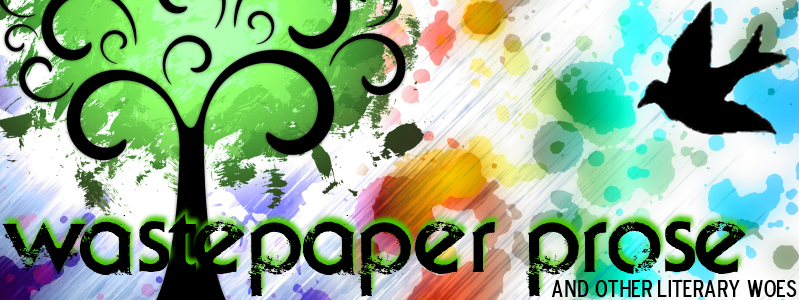
It was exciting to get an invitation anywhere, frankly, so I went out, bought a lightweight seersucker suit, and dithered over which holiday present to re-gift.
(Little known fact: I am 51 years old and have never owned a suit. Or a watch. Carry on!)
The Insight Series is actually quite impressive. In this case, Susan sent along a list of 16 questions to 23 authors. We all answer the same questions in our own way. My way was, naturally, the grumpy way; I feel like that’s my turf.
It’s strange to experience the compare-and-contrast effect of 23 writers answering the same question. I didn’t want to lose! Didn’t want to be the one lame author limping along in last place every time, feet blistered, clutching my side, gasping for air. Everything in life is a competition, as I tell preschoolers at every opportunity, and I was determined to avoid that kind of embarrassment.
Here are the answers to Question #1: “If someone had a behind-the-scenes pass to observe your writing process what would they see?”

My writing process in a picture. Do we really need
a thousand words?
In all seriousness, across four-plus years of blogging, from time to time I’ve tried to write openly and honestly about my writing process . . . without sounding too precious about it. Click here if you care about that stuff.
I was glad for the opportunity to participate. Glad to be able to bring some sliver of attention to my upcoming YA novel, Before You Go. Authors come in all shapes, shades, and sizes — all with our own fingerprint — and it’s worthwhile, perhaps even inspiring, to celebrate that variety of voices. And guess what else? There was be PRIZES and GIVEAWAYS, signed books and such, at the end of the series. Go to Wastepaper Prose and knock yourself out. Hopefully you’ll discover some new writers in the process.

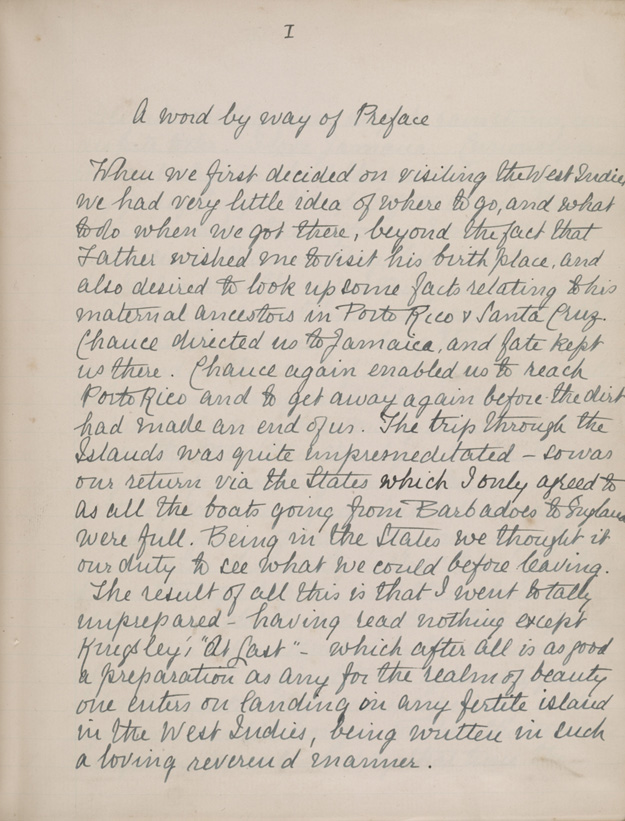
Harriet Sanderson Stewart's Travel Diary
As someone who greatly admires the handwritten word, I am completely enamored by this collection of Women’s Travel Diaries at Duke. Check it out and let me know if anyone else is in love with handwriting?

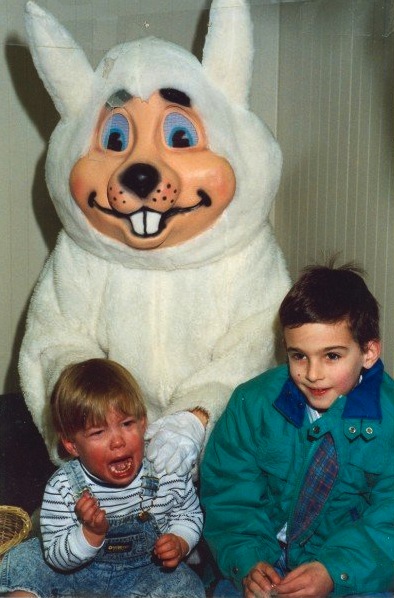


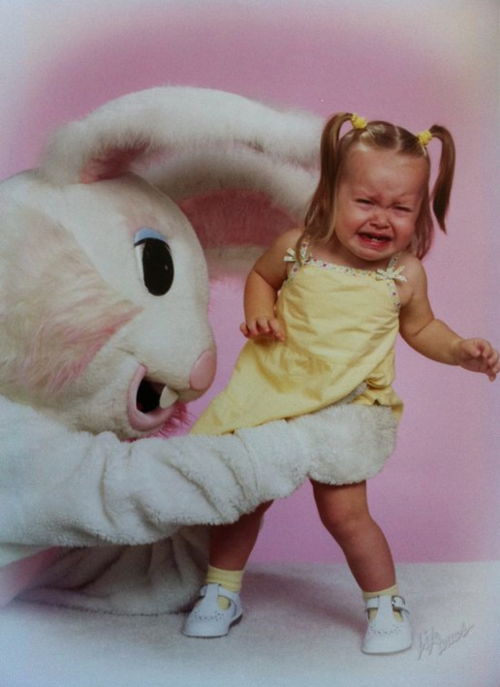
For more Sketchy Bunnies, click away. All praise the interwebs!

By: James Preller,
on 4/3/2012
Blog:
James Preller's Blog
(
Login to Add to MyJacketFlap)
JacketFlap tags:
bullying,
A.O. Scott,
Around the Web,
Bystander,
Bully the movie,
Behind every harassed child a lot of clueless adults,
bully documentary,
Bully trailer,
common reasons to not act against bullying,
Lee Hirsch,
Preller Bystander excerpt,
Add a tag
New York Times film critic A.O. Scott wrote a sensitive, perceptive review (3/29) of the new film, “Bully,” a much buzzed-about documentary by Lee Hirsch.
It’s worth reading in full. But here’s a paragraph to wet your whistle:
The feeling of aloneness is one of the most painful consequences of bullying. It is also, in some ways, a cause of it, since it is almost always socially isolated children (the new kid, the fat kid, the gay kid, the strange kid) who are singled out for mistreatment. For some reason — for any number of reasons that hover unspoken around the edges of Mr. Hirsch’s inquiry — adults often fail to protect their vulnerable charges.

I look forward to seeing this important film, while at the same time dreading it.
Here’s the trailer:

There’s a scene in my book, BYSTANDER, when Eric speaks up to a group of peers. He asks, “The other day with Griffin and David. Why didn’t we do anything to stop it?”
And in that brief dialogue out on the playground, I wanted to quickly present, without editorial, some of the most common reasons cited for failing to stand up.
The mood of the group changed, grew quiet and uncomfortable. A few sets of eyes looked away, perhaps searching for Cody and Griffin.
“What about it, Hakeem?”
The thick-bodied, dark-skinned boy stared at Eric. He smiled, lifted up his hands. “My parents tell me to stay out of it,” he admitted. “I don’t want any trouble.”
“Hallenback is a loser,” Drew P. interjected. “You know how annoying he is, Eric. That kid deserves a little roughing up now and then. It’s like he asks for it.”
“Please, sir, may I have another?” Marshall Jenkins joked in a whiny voice.
Most of the boys laughed, nodding in agreement.
Eric noticed that Pat Daly wasn’t laughing.
“What about you, Pat?” Eric asked.
Pat swallowed, looked at the ground. “Even if, let’s say, maybe you saw something that seemed a little harsh,” he tentatively began. “What if you did say something? You’d get your butt kicked the next day.”
“It’s not worth it,” another commented.
“Besides, who are you going to tell?” Marshall asked. “The principal? Mrs. Morris can’t do anything.”
“What about Officer Goldsworthy?” Eric wondered.
“No way I’d ever rat someone out,” Sinjay stated. “Especially not to a rent-a-cop.”
“Eric, listen to me, okay? You’ve got to lighten up, dude,” Drew P. advised. “Why make a big deal out of it? Okay, a few little things have happened. There’s

By: James Preller,
on 4/1/2012
Blog:
James Preller's Blog
(
Login to Add to MyJacketFlap)
JacketFlap tags:
Albany Times Union Babin,
Kathleen Babin,
Rex Babin,
Rex Babin political cartoonist,
Rex Babin remembered,
Rex Babin youtube,
Sebastian Babin,
The Sacramento Bee,
Current Events,
Around the Web,
Add a tag
Rex Babin lived a block away from me in the early 90’s, back when we both resided in Center Square, Albany. I was new to Albany, with a wife and (soon, in 1993) a young child. Rex was a single guy with a good apartment, and we hung out a lot, listening to the Pixies and Nirvana, and talking, talking, talking. Beer was sometimes involved.

This is Rex, holding my son, Nicholas, 1993. A future father in training.
Rex was a California kid, tall, strong, ruggedly handsome — always a little out-of-sorts in the gray climate of upstate New York. He worked for the Albany New York Times Union newspaper as a political cartoonist, so there was always something rattling around in his head.
We lost touch after he moved to a new job at
The Sacramento Bee in 1999 — keeping touch was something that neither of us were any good at that. We became Facebook friends, of course, following each other across a great distance, but that was a faint duplicate of the real, tangible connection that once was. I learned on Friday that
Rex had passed, after a two-year battle with stomach cancer. He left behind a wife, Kathleen, and a son, Sebastian.
-
When I think of our friendship, I’m reminded of so many others that have come and gone. The kid in second grade I used to hang out with all the time. The girlfriend in tenth. The college roommate, the work colleague, and so on. All these friendships that we mutually surrendered over the years.
-
We simply let go.
-
-
Glad to unearth this old shot of me, my dog, and Rex.
-
What I now understand is that friendship has its own grip. We might loosen our connection, but the friendship — that thing, whatever it was — never lets go. Anyone who was ever a friend, no matter how ephemeral, carves a permanent place in the heart. We might forget that in our headlong rush to the next and the next and the next, the busy itinerary of our days, but these recent years I find myself remembering those friends more and more.
-
Regrets, yes. The could haves and should haves. But mostly this: appreciation for what once was. Gratefulness. Forgiveness. Love.
-
Rex was one of those guys. A good guy who passed through and left a mark, like scrimshaw on whale bone. Rex was here. And despite the fact we haven’t spoken in years and years, and perhaps we both should have been better friends, I mourn his passing, raise a glass to his memory, send my best thoughts to Kathleen and Sebastian, and cry a few tears.
-
Rex was a friend of mine, and no matter how much rain and sadness we endure, that stuff never, ever washes away. He will be missed.
It sounds like a George Carlin riff, but no one with any sense is laughing. That is, so long as we all agree to disqualify the rueful laugh, the mournful chuckle, or the stomach’s sad-and-knowing rumble.
You know, the laugh that keeps you from screaming.
Click here for the article that caused my jaw to drop:
The New York City Department of Education is waging a war on words of sorts, and is seeking to have words they deem upsetting removed from standardized tests.
Fearing that certain words and topics can make students feel unpleasant, officials are requesting 50 or so words be removed from city-issued tests.
Ludicrous, misguided, dumb. I won’t keep you in suspense.

-
The complete list of words that could be banned:
Abuse (physical, sexual, emotional, or psychological)
Alcohol (beer and liquor), tobacco, or drugs
Birthday celebrations (and birthdays)
Bodily functions
Cancer (and other diseases)
Catastrophes/disasters (tsunamis and hurricanes)
Celebrities
Children dealing with serious issues
Cigarettes (and other smoking paraphernalia)
Computers in the home (acceptable in a school or library setting)
Crime
Death and disease
Divorce
Evolution
Expensive gifts, vacations, and prizes
Gambling involving money
Halloween
Homelessness
Homes with swimming pools
Hunting
Junk food
In-depth discussions of sports that require prior knowledge
Loss of employment
Nuclear weapons
Occult topics (i.e. fortune-telling)
Parapsychology
Politics
Pornography
Poverty
Rap Music
Religion
Religious holidays and festivals (including but not limited to Christmas, Yom Kippur, and Ramadan)
Rock-and-Roll music
Running away
Sex
Slavery
Terrorism
Television and video games (excessive use)
Traumatic material (including material that may be particularly upsetting such as animal shelters)
Vermin (rats and roaches)
Violence
War and bloodshed
Weapons (guns, knives, etc.)
Witchcraft, sorcery, etc.
Every so often I want to highlight what books are being talked about Around the Web. So, without further ado, the launch of a new series.
On Oprah’s blog, Life Lift, we have our weekly book recommendation.
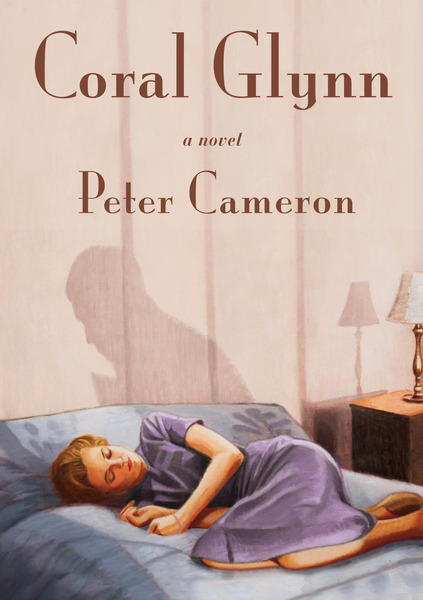
Coral Glynn by Peter Cameron
Coral Glynn
by Peter Cameron
In the standard domestic drama, a poor lonely girl comes to work for a rich lonely man, and the two fall in love, a la Jane Eyre. The thought-provoking Coral Glynn begins in just this way. It’s right after World War, and Coral comes to nurse the dying mother of Major Clement Hart—an Englishman whose leg and confidence have been badly damaged on the battlefield. The Major quickly falls in love with Coral, and the two decide to get married, until a gruesome murder in the neighboring woods sends Coral fleeing back to London. For a few pages, it seems as if this book may turn into a Gothic thriller: how will the two reunite and who exactly is the killer? But Peter Cameron is so much more of skilled and subtle writer than this. Underneath his page-turning plot is a careful, complex examination of loss—and the human ability to fully experience love after too much loss. Coral has suffered all kinds of quiet, devastating violence in her own life—the unspoken kind that’s either ignored or simply expected when it comes to working-class woman, post-war or not. It’s her emotional life that becomes the real mystery of the novel. Coral can’t engage with others, even as they become entranced, if not bewitched, by her. She tries to connect, of course, and at strange, unexpected times, longs for more, such as when she enters a florist shop and is overwhelmed by the beauty of the flowers, feeling “in some way that ll the life and warmth of the cold, drab town, of her life, had collected in this room—that she was in the hot golden center of the world.” Here is the pleasure of the novel—albeit a painful one. In bringing Coral to life, Cameron knows what not to say, how to leave the kind of tiny, white space that lets us readers imagine the huge, colorful, overwhelming world of even the most broken human heart.
————————
USATODAY brings further attention to the underground, cult-like book, FIFTY SHADES OF GREY that is becoming one of the most talked about books of the season. Turns out, FIFTY SHADES started off as a Twilight Fan Fiction creation.
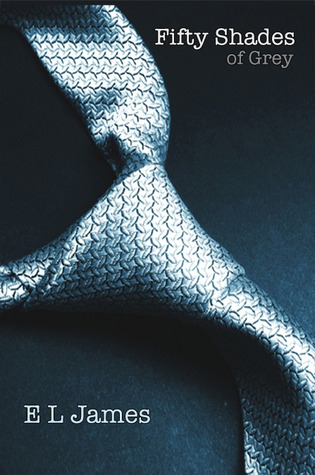
Fifty Shades of Grey by EL James
FIFTY SHADES OF GREY by EL James:
When literature student Anastasia Steele is drafted to interview the successful young entrepreneur Christian Grey for her campus magazine, she finds him attractive, enigmatic and intimidating. Convinced their meeting went badly, she tries to put Grey out of her mind – until he happens to turn up at the out-of-town hardware store where she works part-time.
The unworldly, innocent Ana is shocked to realize

By: James Preller,
on 3/13/2012
Blog:
James Preller's Blog
(
Login to Add to MyJacketFlap)
JacketFlap tags:
Along Came Spider,
Around the Web,
Fun Clips,
Along Came Spider Preller,
James Preller Grand Rapids,
James Preller Michigan,
James Preller on Television,
James Preller television,
One city one school,
Preller on Take Five,
Add a tag
On Monday, I appeared on a local morning televison show in Grand Rapids, Michigan.
Click here to see me in all my telegenic glory.
I’m posting this, just barely, from the antiquated computer in my hotel in downtown Grand Rapids, birthplace of Amway and President Gerald Ford, so you’re not going to get anything fancy in this post.
I should also mention . . . it took me three days in this hotel until I finally turned the right way after getting off the elevator. It was a small but satisfying victory. Life is good.
A couple of weeks back I heard Gavin at the piano, teaching himself the main theme to “The Simpsons.” When I saw how he was doing it — through Youtube, and with our iPad propped against the piano — I documented it with a few snaps.



Some world we live in, ain’t it?

By: James Preller,
on 2/1/2012
Blog:
James Preller's Blog
(
Login to Add to MyJacketFlap)
JacketFlap tags:
James Marshall,
William Steig,
Arnold Lobel,
Matthew Cordell,
Julie Halpern,
Around the Web,
James Preller photo,
Mighty Casey,
Another Brother,
Best Baseball books for kids,
Cordell Another Brother,
Preller Mighty Casey,
Add a tag
I first learned of Matthew Cordell when he was hired to illustrate my picture book, MIGHTY CASEY. Despite Matt’s great artwork, the book never really found an audience, and I guess it sort of died on the vine, as they say. But there are two great things that came out of that book. First, my ongoing friendship with Matthew and his amazingly talented wife, Julie Halpern. Someday I hope we’re all in the same room! In my opinion, Matt is a hugely gifted illustrator, and a true artist, and an heir in his approach and dedication to Arnold Lobel, who is one of my all-time heroes. He’s also got a touch of William Steig.
Look, I’ll say it. A lot of children’s book illustration, while technically spectacular, isn’t very appealing to kids. Matt’s work, on the other hand, is loose and inviting and draws readers into the story. Like Lobel, and Steig, and James Marshall, and all the best. I really think Matt is that good, and he’s just scratching the surface.
Secondly, I’m gladdened by the consistent pleasure I experience when on odd times I pull out MIGHTY CASEY and read it aloud to large groups of students. I’m telling you, it works every time. We laugh, we have fun, and by the end these kids are right there, leaning in, eager for the play at the plate. Sales or not, those experiences tell me that Matt and I did good together — we made something, you know, put it out into the world. It’s all we can do.
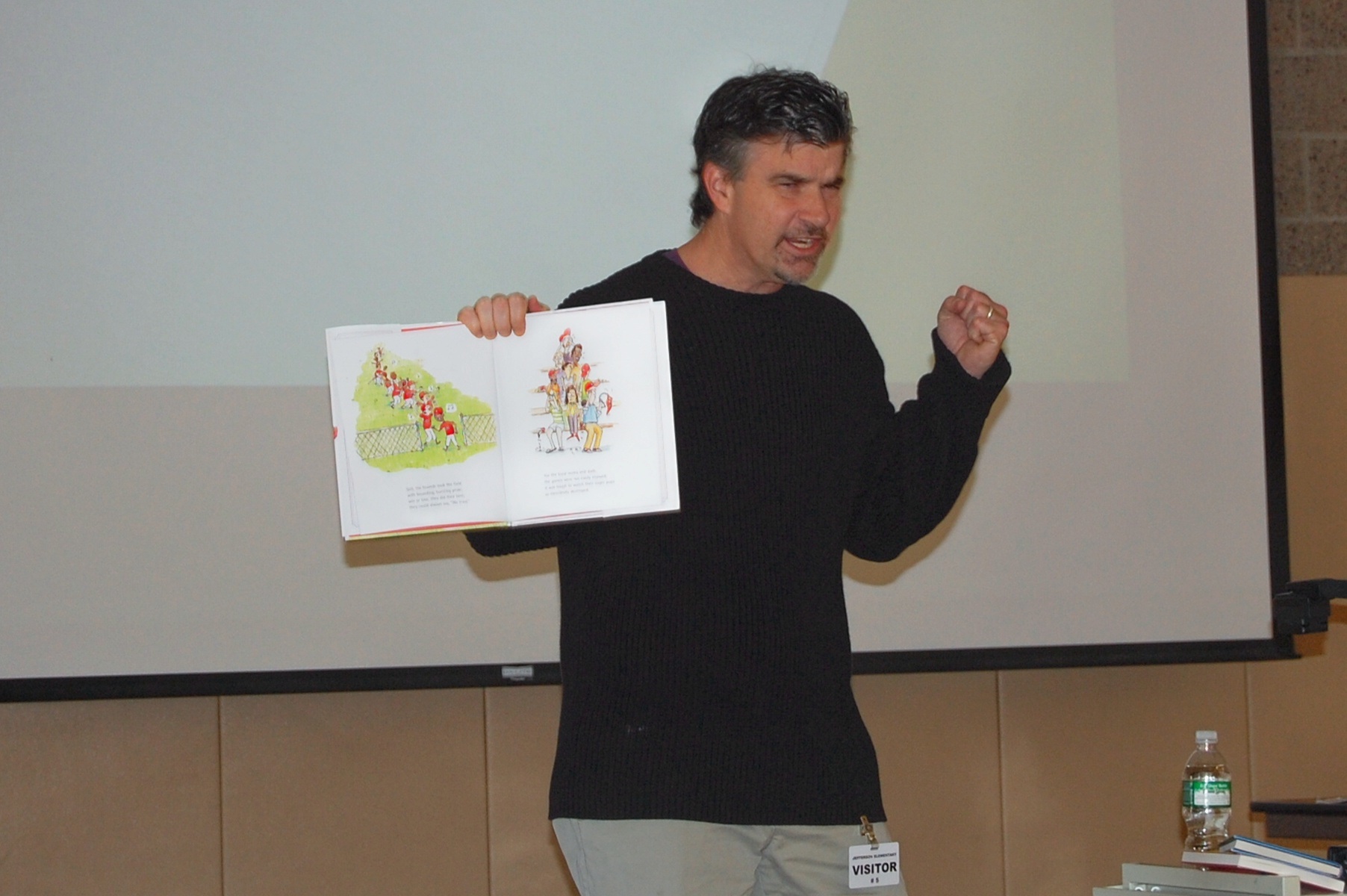
Anyway, Matt created a homemade trailer for his new picture book, ANOTHER BROTHER. Now on sale on every street corner, car trunk, haberdashery — and independent bookstore, too!
Enjoy . . .


By: James Preller,
on 12/2/2011
Blog:
James Preller's Blog
(
Login to Add to MyJacketFlap)
JacketFlap tags:
Matthew Cordell,
Around the Web,
Herve Tullet,
Interviews & Appreciations,
Press Here,
The Dot,
A Children's Book Challenge,
Best gift for graduation present,
best graduation present,
Make your mark,
Matthew Cordell Another Brother,
Matthew Cordell blog,
Reawaken Your Love for the picture book,
The Arts Room,
The Dot Peter Reynolds,
The Picture Book Pledge,
Add a tag
I discovered this great post from The Arts Room blog, where they are taking their 2nd Annual Picture Book Pledge just in time for the holidays.
Please follow the link above to read about the pledge, find some book recommendations, and see a charming video about the diabolically clever new picture book, Press Here, by Herve Tullet.

Well done, Arts Room! And you too, Monsieur Tullet.
Along those lines, my friend, illustrator Matthew Cordell, has been banging on a similar drum. But Matt’s drum, “A Children’s Book Challenge,” is on Facebook. Because he’s sooo New Media.
You can get to it by clicking like a madman here. Be sure to click the “like” button when you go there.
By the way, and seriously, Matt is amazing — and so productive that I want to punch him in the face. (But in the nicest, sweetest way possible.) Just look at this list of titles — the guy doesn’t sleep! It’s especially great that Matt is now writing some of his own books. Here’s an upcoming one (January 2012) I’m particularly excited about.

Matt blogged on this topic in a post titled, “Reawaken Your Love for the Picture Book”:
The children’s picture book is not doing so well. People aren’t buying it like they should. I don’t have all the facts and numbers (I’m not that guy), but I know enough to tell you that. Maybe it’s because of tough economic times. Maybe it’s because of e-bookery or general gadget-y (short attention span) distractions. Maybe it’s because parents aren’t reading to their kids enough. Maybe it’s because education is accelerating young readers at a newer, faster pace, and rushing them over the picture book form. Maybe it’s because it’s been forgotten how important, irreplaceable, and (when stars align) how spiritual the picture book experience is to both children and adults.
A couple of paragraphs later, Matt issued this challenge (which is funny to me, because Matt is such not an in-your-face, “issue a challenge” kind of guy):
This is my challenge to you, dear readers. Go into a book store (not a website, but a store with a roof, walls, people, books you can hold and browse over) and spend some time in the children’s book section. Find something incredible (it ain’t hard). Then, when you’re all filled up, buy just one picture book. And in a week’s time, repeat. Buy one picture book a week for your kid(s), some other kid(s) you love, or for yourself or some other grown-up you love. I can identify th

By: James Preller,
on 11/29/2011
Blog:
James Preller's Blog
(
Login to Add to MyJacketFlap)
JacketFlap tags:
Mark Twain,
William Faulkner,
Joan Didion,
Keith Richards,
Anne Sexton,
Around the Web,
Emily Temple Flavorwire,
Leah Price,
Norman Mailer Brooklyn Heights,
Norman Mailer's library,
Unpacking My Library,
Writers libraries,
Add a tag
I won’t make you wait for it. My apologies for the spillover into the sidebar, but it would require actual skill to adjust the size of the photo. So, like, that’s not happening!

This is Mark Twain’s first-floor library in his Hartford, Connecticut, home. How cool is that?
You can thank Emily Temple of Flavorwire for that shot, since she recently compiled a hot batch of photographs featuring the libraries of famous writers, inspired, in part, by the recent publication of Leah Price’s new book, Unpacking My Library: Writers and Their Books.
Below, a few more of my favorites . . .

Joan Didion, John Dunne, daughter Quintana Roo, and dog.

William Faulkner collected old books, apparently. Oh, wait.

Anne Sexton’s shelves look so . . . normal.

Norman Mailer lived in Brooklyn Heights, not far from my brother. But Norman had more books, and a better apartment. He also liked lamps.
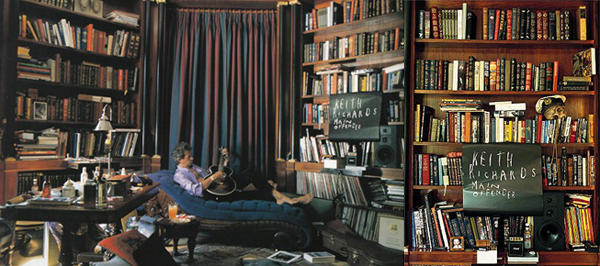
This Rolling Stone gathers no moss, but collects books, obviously. If you are really in a Keith mood, go here for my ultimate “Keef Sings” mix.

By: James Preller,
on 11/12/2011
Blog:
James Preller's Blog
(
Login to Add to MyJacketFlap)
JacketFlap tags:
Ira Glass,
Around the Web,
In the Classroom,
Alex Blumberg,
Brian Reed,
Domingo Martinez,
Elizabeth Green,
Eric Mennel,
Jonathan Menjivar,
Linda Perlstein,
Lisa Pollak,
Marion Strok,
Mimis in the Middle,
Not Much Just Chillin',
Parkville Middle School,
Sarah Koenig,
Shannon Grande,
The Boy Kings of Texas,
This American Life Middle School,
Add a tag
It’s been a busy month, with many school visits and almost no real writing. On Sunday, tomorrow, I’m heading to South Carolina, a trip that begins with three presentations in a middle school. So I thought I’d share my highest recommendation with you.
Listen to This American Life: Middle School. Trust me, it’s terrific. Smart, insightful, poignant, funny, heartbreaking. Really, I mean it. This is brilliant and you have must, must, must give it a listen.

Seventh-graders at a costume dance, dressed
as characters from The Outsiders.
To listen to the show, you have a couple of options. You can go here, for free, to hear the show in its entirety. Or you can catch up on all the old episodes of “This American Life” on iTunes for only 99 cents each. The “Middle School” segment originally aired in late October. Here’s some background info, as provided by WBEZ:
This week, at the suggestion of a 14-year-old listener, we bring you stories from the awkward, confusing, hormonally charged world of middle school. Including a teacher who transforms peer pressure into a force for good, and reports from the frontlines of the middle school dance.
Prologue.
Host Ira Glass interviews a 14-year old named Annie, who emailed us asking if we would do a show about middle school. She explains why exactly the middle school years can be so daunting. (4 1/2 minutes)
Act One: Life in the Middle Ages.
In an effort to understand the physical and emotional changes middle school kids experience, Ira speaks with reporter Linda Perlstein, who wrote a book called Not Much Just Chillin’ about a year she spent following five middle schoolers. Then we hear from producer Alex Blumberg, who was a middle school teacher in Chicago for four years before getting into radio. Alex’s takeaway? We shouldn’t even try teaching kids at this age. Marion Strok, principal of a successful Chicago s

By: James Preller,
on 10/31/2011
Blog:
James Preller's Blog
(
Login to Add to MyJacketFlap)
JacketFlap tags:
Happenings,
James Preller,
Berkshire Taconic Community Foundation,
Around the Web,
Bystander,
Hudson City School District Arts & Humanities,
Bystander the play,
Concrete Temple Theater,
Contrete Temple Theatre,
Add a tag
Just a reminder for those of you in the area . . .

Special thanks to the Hudson City School District Arts & Humanities Fund and the Berkshire Taconic Community Foundation for making this debut performance possible. I’m honored, surprised, and eager to see it — and wondering where this endeavor might take us before we’re through. Maybe to a school near you?
View Next 16 Posts



























































